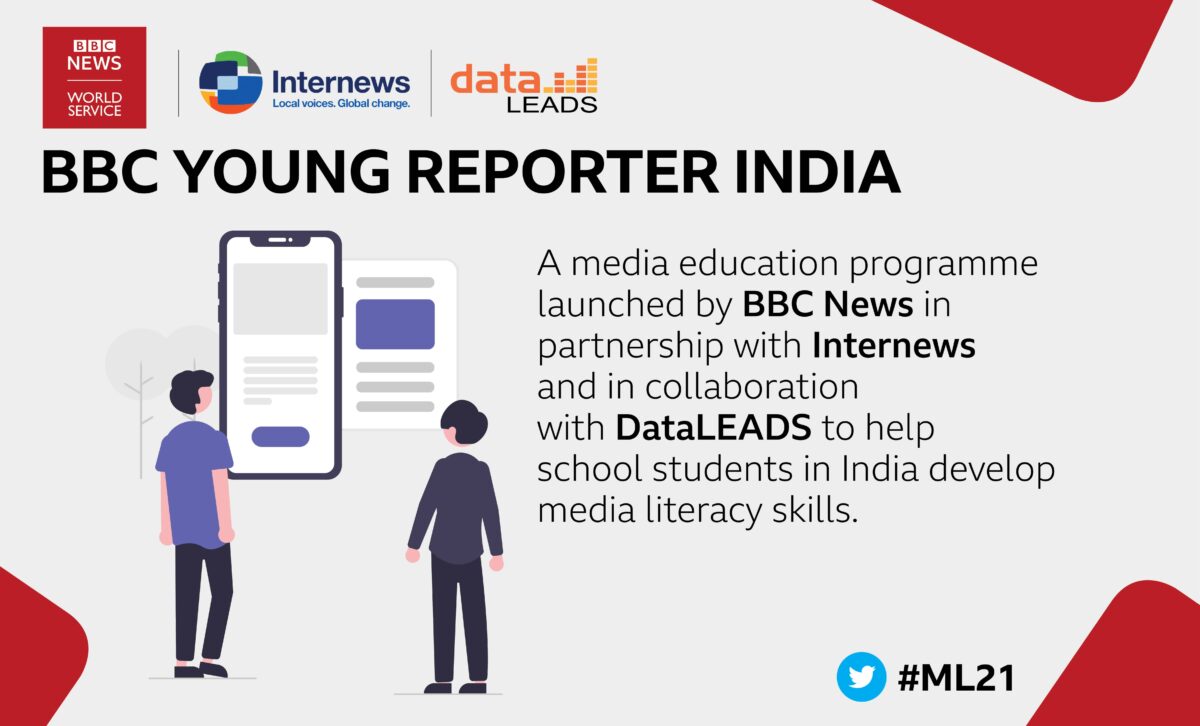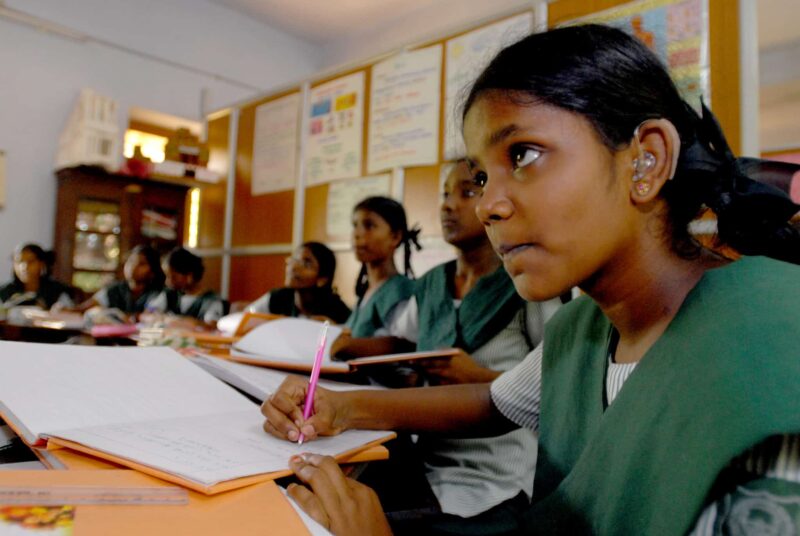After successfully training hundreds of journalists and media educators and citizens throughout India on fact-checking and media literacy, Internews announces a joint media literacy project for school students from grades 9-12, together with BBC News World Service and DataLEADS.
“BBC Young Reporter India”, launched by BBC News World Service in partnership with Internews and in collaboration with DataLEADS, adapts components of the successful BBC Young Reporter and BBC Beyond Fake News programme in the UK, helping students step into a reporter’s shoes and practice critical thinking, to confidently choose trustworthy information and reject online misinformation.

Starting July 2021, participating students will be trained by a group of passionate and experienced programme trainers – including media educators from some of the top media colleges and universities in India and factcheckers. Each session will lead students through exercises to improve their digital and media literacy skills, using real-life examples from news and current events. After the workshops, students will have the opportunity to produce videos, bulletins, skits and poems to be featured in a BBCnewsletter and participate in the network’s and partners’ future events and media coverage. They will also get participation certificates.
If you are a media educator, a fact-checker or a school teacher keen to join the network as a trainer, please apply here. Interested schools and teachers will also be able to sign up soon to seek training for their students and be a part of this initiative.
Schools will receive access to the programme curriculum, expert trainers’ practical workshops, and online resources. They will also benefit from events, training, and resources offered by the media colleges and programme partners.
Talking about the project, Marie Helly, the Head of BBC Beyond Fake News , says,
“The BBC is delighted to have this opportunity to expand its successful media education programme across India. 1000s of students have already benefited from our classroom workshops in the UK, Nigeria, Kenya, Ukraine and Brazil. The need for young people to know how to understand and verify the information that fills their screens and feeds is now an essential part of a 21st century education.
The COVID pandemic has shown us how much harm misinformation can do. There is an urgent need for young people to have the tools to think critically and understand the difference between what is real and what is fake.”
“At Internews, we understand that accessing information is only a first step. The real challenge is that while people have embraced technology and moved to digital, they are often unable to critically assess the information they read online and find facts they need make informed choices,” said Surabhi Malik, Internews’ Programme Director and Country Lead for India. “Critical thinking is a must-have skill in today’s digital era. We’re thrilled to team up with BBC News, World Service and DataLEADS to address the next generation on this key subject and be able to empower the young minds to fight misinformation and become more informed citizens of tomorrow.”
“We’re delighted to work with Internews and the BBC in this important information literacy initiative in India,” says Syed Nazakat, Founder of DataLEADS. “This initiative is a significant investment in the media literacy of our school children to foster empowered citizenship in the digital age. This programme will offer children tools and approaches to access and evaluate online information they receive from a variety of sources, helping them to develop literacy skills and critical thinking.”
